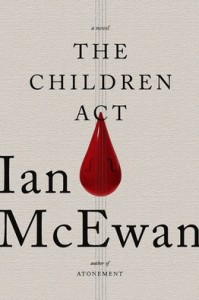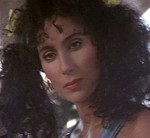Ever since Paul Moran began sharing Updike ephemera on a blog called The Other John Updike Archive (the link to which you can find on our home page), Updike scholars have been wondering where he got the materials—with many speculating that he may have rescued them from a dumpster after Updike died.
Now in a story titled “The Man Who Made Off With John Updike’s Trash” by Adrienne LaFrance, posted on The Atlantic website on August 28, 2014, the mystery is explained . . . sort of.
Moran, a bicyclist, cycled past the Updike house and grabbed bags of trash, some of which Updike himself had just carried out. He did this regularly, and the family didn’t seem to mind, Moran says. Martha Updike is not quoted—only Estate literary agent Andrew Wylie, who says that Moran would “steal the Updike’s trash bags every Wednesday” and that the family tried to get him to stop.
The article is subtitled “Who really owns a great writer’s legacy?” but the law is pretty clear here. It’s not illegal to take someone’s trash from the curb. People do it in every town everywhere in America, so Moran did nothing against the law. And if he had taken the items after what amounted to an Estate housecleaning, thrown away after Updike’s death, he could be considered heroic for saving things that future scholars might find useful. I would have done it myself.
Even if he got the items while Updike was still alive, if there was no objection, where’s the foul? The problem, for some people, comes if the Updikes truly did want him to stop. That adds a moral dimension to it, and as someone who’s put the brakes on an idea the minute that Updike objected, my own inclination on such things has always been to abide by Updike’s wishes. Still, there are other collectors and scholars who would argue that preservation of the materials is more important than personal feelings, just as Updike, as we read in Begley’s recent biography, put fiction ahead of people. And it’s not clear from the Atlantic article whether the family truly objected, or to what degree. One quote from a literary agent doesn’t make the case.
The law is pretty clear regarding the items themselves. The physical items are owned by whoever bought or in this case salvaged them. And it’s terrific that Moran has chosen to share them with the world. He can get away with “publishing” items like the Hotel Algonquin bill, or ticket stubs, or invitations, or a call to jury duty, because they’re artifacts not subject to intellectual property law. Any drawings that Updike did, any doodles, any notes, anything that expressed a thought or opinion of his are covered by that law and Moran cannot make those items public because the content is owned by the Updike Estate, even though he owns the physical objects.
Puzzles remain, though: Updike was a pack-rat. He saved everything. So why throw away these things after holding onto them so long, especially all of those old slides and photographs? Why not give the latter to his children? I know from talking with him that he cared very little about the honorary degrees, but I find it hard to believe that he didn’t include them with the Harvard materials, or that “Mrs. Updike said it was fine and she was glad [the honorary degrees Moran found and sold] were going to support a local bookstore.”
So there are aspects about this that we may never know. Moran is quoted as saying that “he’s looked for permanent homes for the archive” but “says everyone he’s approached has turned him down.” Maybe he wants something in return, and the price is too high. But I do know that if the items were displayable and not a violation of intellectual property laws, if the items were Pennsylvania-related, and if the board of The John Updike Childhood Home approved, some of those items would find quite a welcome home.
 Ian McEwan is on a book tour promoting his new novel, The Children Act, but consciously or subconsciously he’s been promoting John Updike as well. In a previous interview (JUS post) he mentioned Updike favorably, and in this interview-article he’s quoted as saying,
Ian McEwan is on a book tour promoting his new novel, The Children Act, but consciously or subconsciously he’s been promoting John Updike as well. In a previous interview (JUS post) he mentioned Updike favorably, and in this interview-article he’s quoted as saying,


